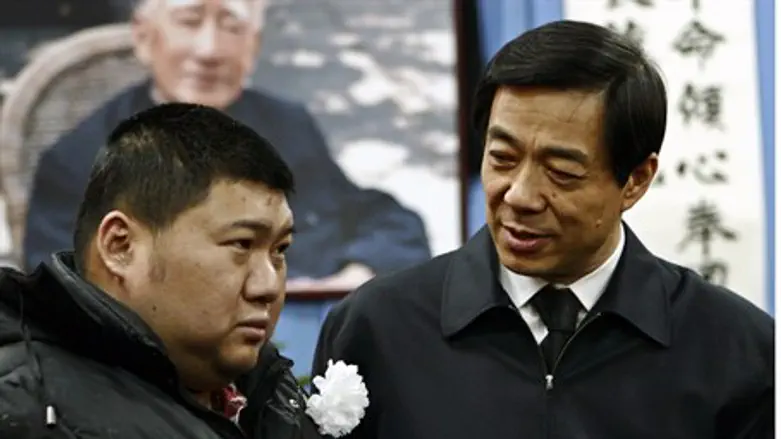
People's Daily the organ of the Communist Party of China, is calling for unity behind the party Central Committee's decision to investigate Bo Xilai. Until recently, Bo Xilai was the party boss of Chungking and a claimant to the leadership.
Bo Xilai is accused of seriously violating party discipline and tarnishing the party's image.
In his glory days, Bo Xilai was pushing a neo-Maoist model in his mega-city. He had launched an anti-corruption drive that was publicized by television broadcasts displaying the trials of apprehended mobsters. It was later revealed that some of the confessions were extracted by gruesome torture.
Although Bo Xilai himself hardly conforms to the image of a Spartan Maoist, as he was always nattily attired in well-cut business suits rather than Mao jackets, his populism struck a chord with Chinese fed up by the symbiotic relationship between party magnates and plutocrats.
Both sectors lived ostentatiously and connived to exploit common people. Bo Xilai, with his campaign of revolutionary songs, appealed to nostalgia for a more egalitarian era.
Bo Xilai's rehabilitation of Maoism also threatened to reopen old rifts about the Chinese Cultural Revolution. This policy was launched by Mao Tse-tung in 1965 against his own party.
After the failure of Mao's harebrained Great Leap Forward (1958-1960), in which scores of millions died of starvation, the saner members of the party sought to curb his power and make him an honorary figure in the party.
Mao would not have this, and relying upon middle level party officials, who wanted rapid promotion and students, he launched the Cultural Revolution that ushered in a period of turmoil in which senior party officials were persecuted as capitalist roaders; works of foreign authors, such as Shakespeare and Moliere, were burned and anyone sporting Western dress or haircuts could encounter rough treatment from the Red Guards. University professors were sent to the countryside to learn from the peasantry - and pig farmers became professors.
This lunacy, which brought China international isolation and economic devastation, ended in 1969. An uneasy truce settled in. Some prominent victims of the period made their way back to power, most notably Deng Xiaoping. Deng preferred to erect a facade of party unity for the party's sake, fearing that a full airing of the period would discredit the party at a time that it was needed to lift China into greatness.
Bo Xilai himself was one of the students who persecuted senior party officials, but these officials had their protégés and disciples of the younger generation. One of them is Chinese Prime Minister Wen Jiabao, who is leaving office this year. Wen, in one of his farewell speeches, warned that the party had not sufficiently reformed itself to the point that a recurrence of a Cultural Revolution could be ruled out.
As the timing of the speech in February was close to the first rumblings of the Bo Xilai affair and his dismissal from office, there were those who felt that the unity facade was cracking and a power struggle was in the offing. Chinese blogs even began warning about an imminent coup, but were silenced.
Actually, the way the party has chosen to break the news of Bo Xilai's dismissal from the Politburo and Central committee and his investigation, seem to be an attempt at maintaining the appearance of unity.
The charges concern the murder and swift cremation of a British national, Neil Heywood, with a background in British MI6 intelligence. He had business dealings with Bo Xilai's wife Gu Kailai and made use his old boy network to get Bo Xilai's son Bo Guagua accepted first into Harrow and then into Oxford. The charges against Gu were broadcast hourly on Chinese television.
There was a large element of irony in the party turning Bo Xilai's populism against him. What could be better proof that the party remains essentially uncorrupted, if it was willing to apply the rule of law against a party princeling whose father was a leader of the Chinese Revolution and a bosom companion of Mao.
What kind of egalitarian and populist was Bo Xilai, if he first solicited favors from a foreign businessman and then was an accomplice to covering up his murder?